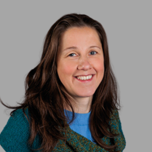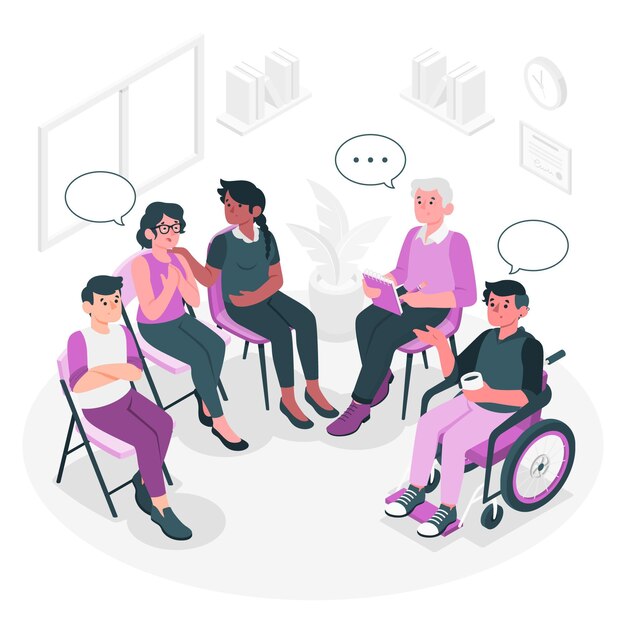Navigating Language in Disability

Dr Laura Finney - ClinSci, PhD, MSc, BEng Group Clinical Research Director

In an ever-evolving society, language plays a pivotal role in shaping our perceptions and attitudes. When it comes to discussing disabilities, the words we choose can have a profound impact, positive or negative, on people and their communities. Terminology, and particularly clinical terminology, has undergone a significant transformation over the years, reflecting a new collective understanding and respect for diversity. This blog aims to shed light on the evolving language of disability, the reasons behind the shift from terms like "disabled child" or "special needs" to "additional needs," and the challenges companies face in adopting a universally accepted terminology.
The Evolution of Language:
Language is amazingly dynamic, and its evolution often reflects changes in societal values. In the realm of disability, terms like "disabled child" and "special needs" and “even abnormal” were once commonly used by healthcare workers, but in recent years they have become increasingly contested. Many now find these terms outdated and even offensive due to their perceived stigmatization and labelling. As our wider society strives for inclusivity and respect, the language surrounding disabilities has adapted to reflect these values.
Person-centred or person-first language:
Person-centred language grew from the disability rights movement in the 60s and 70s which played a crucial role in advocating for the rights of people with disabilities. It is a means to emphasise the individuality and dignity of people rather than focus on or be defined by the disability, recognising that a disability is just one aspect of a person’s identity and should not overshadow their unique personality and potential. For example, instead of saying a ‘disabled child’, person-centered language would put the emphasis on the person first and encourage the use of ‘child with a disability’. This subtle shift acknowledges humanity before disability and is widely accepted in the physical disability community.
The Shift to "Additional Needs":
In recent years, there has been a noticeable shift towards using the term "additional needs" to describe individuals with disabilities and “typical development” for those who do not require additional assistance or are developing as expected. This term emphasises the idea that everyone has unique requirements and acknowledges that for some people, these needs go beyond what is considered typical. "Additional needs" is seen as a more inclusive and person-centered phrase that focuses on the individual's capabilities rather than their limitations. However, others would argue that the term disabled is more direct, and that using clear and concise language helps everyone to acknowledge and embrace disability rather than seeing it in negative terms. Indeed, the social model of disability would suggest that rather than disability being a trait inherently linked to an individual, it is created by societal barriers, attitudes and structures. In the world of complex paediatric disability, this view is rare.
Understanding Children's Needs:
At the heart of this debate is what works best for children during their childhood and for their future. It is crucial to recognise that regardless of their abilities, all children have fundamental everyday needs: to socialise, to have a warm loving family, to have access to healthcare, to be educated, to feel safe, to have fun. This is exemplified by the F-words work (Functioning, Family, Fitness, Friends, Fun, Future) by CanChild. These needs are not "special" or "additional" but rather part of the normal spectrum of human requirements for growth, development, and well-being. What sets children with disabilities apart is that they may require varying degrees of assistance to meet these needs.
Navigating Language as a Company:
As a company, adopting a standardised language for disabilities poses challenges. While "additional needs" may be a modern and inclusive term used in healthcare, the reality is that not everyone has embraced this shift, for example most schools are still “special schools”. Also, some parents and caregivers still use terms like "special needs" when searching for products or services. At Leckey and Firefly we have taken a decision to strike a balance and use a mixture of language in our social posts and across our website.
Individual Preferences on Labels:
It's essential to recognise that language preferences surrounding disabilities are highly individualised. What one person finds empowering; another may find disempowering. Some individuals may prefer person-first language, such as "person with a disability," while others may embrace identity-first language, like "disabled person." If you hear our clinical team through our Leckey Learn webinars or face-to-face talks, they will probably use terms that they feel most comfortable with such as ‘additional needs’ and ‘typical development. Acknowledging and respecting these individual preferences is crucial for fostering an inclusive and supportive environment.
Conclusion:
In the journey toward inclusivity and respect for individuals with disabilities, language plays a crucial role. While we feel the shift from terms like "special needs" to "additional needs" reflects a positive change, it's important to acknowledge the diverse preferences within the community. As a company, embracing a mixture of language is a practical approach to ensure that we are accessible to everyone. By fostering an environment of understanding and flexibility, we contribute to a society that values the dignity and worth of every individual, regardless of their abilities, recognising that all children have a range of needs that require varying levels of support.
Laura Doyle
Clinical and Marketing Director


